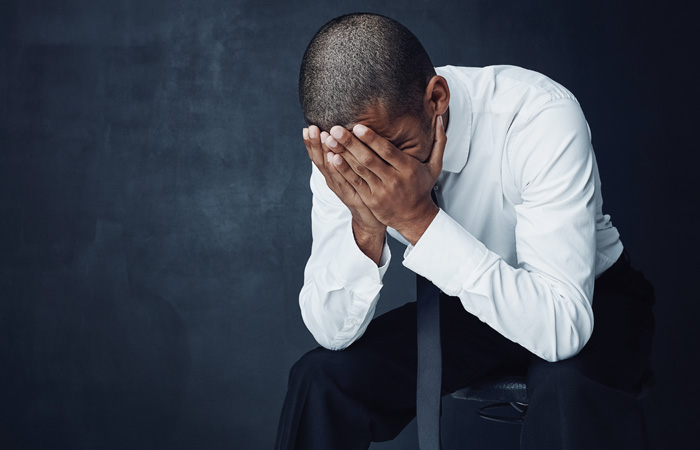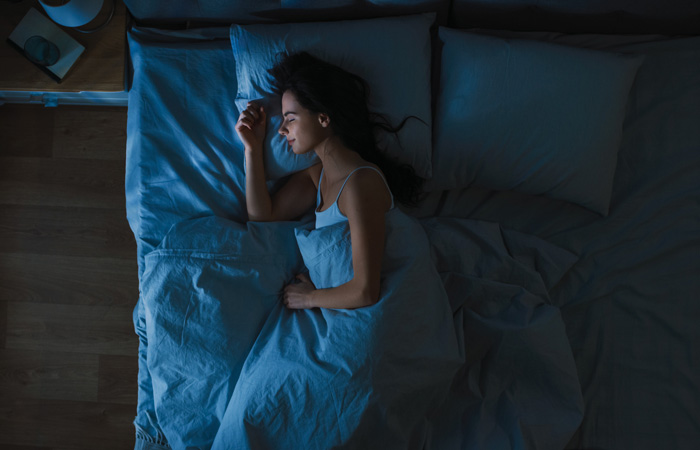Fight or flight
In Common conditions
Follow this topic
Bookmark
Record learning outcomes
Stress and anxiety are closely linked to insomnia. Unsurprisingly, the events of 2020 have heightened demand for services and treatments to ease all three
In December 2019, the Royal Pharmaceutical Society (RPS) and the Pharmacist Support charity surveyed more than 1,300 pharmacists: almost three-quarters said their work or training has had an impact on their mental health or wellbeing at some point. Significantly, 80 per cent of respondents said they were at high or very high risk of burnout due to exhaustion, with more than half stating they felt they didn’t spend enough time with family and friends and had considered a change of career.

Pharmacist Harpreet Chana realised she had to address her own mental health when work-related burnout led to depression and suicidal thoughts. “At times I was living off one hour’s sleep,” she says. “I worked harder, pushed harder and carried on. Eventually, I realised I wasn’t okay. I was feeling really low and was self-medicating with a glass of wine and sugary foods, keeping myself busy all the time. On one occasion, I stood on a railway bridge, and it was only thoughts of my family that stopped me jumping. My GP offered antidepressants and a three-year waiting list for therapy, and that’s when I realised I needed to do something about it myself.”
In 2017, Harpreet found a mindset coach and then, a year later, trained as a professional coach herself. In 2019, she founded the Mental Wealth Academy to help individuals deal with their work-life balance and to help businesses reduce the impact mental health has on team performance. “I’m not a therapist or counsellor,” she says. “But I focus on prevention and self-leadership skills – building confidence and resilience, effective communication, self care and assessing what makes us as individuals thrive and what triggers our negative thinking.”
Managing pharmacy stress
In everyday situations, stress helps keep us alert, but when it becomes excessive or persists over time, it can cause mental and physical symptoms. While stress is generally a short-term response to an external cause, anxiety has an internal cause, such as worrying about stressful events that haven’t yet happened.
During the last year, pharmacy organisations, including the RPS, National Pharmacy Association (NPA) and Pharmacist Support, have launched campaigns in response to rising mental health issues. To coincide with Mental Health Awareness Week this May, for instance, Pharmacist Support launched the ACTNow campaign to encourage those in the profession to prioritise their own mental health and wellbeing, and to check in on their colleagues.
“Since the start of the pandemic, the main concerns people have been contacting Pharmacist Support about are linked to the uncertainty of the situation and the additional pressures and workload the pandemic has brought, which in turn has caused increased stress and anxiety,” says Danielle Hunt, the charity’s chief executive.
Pharmacist Support has seen a spike in the number of people accessing online information and resources on its website. “Although the campaign may have come to an end, the support for our pharmacy family has not,” says Ms Hunt. “Wellbeing is very much ingrained into all that we do here. Our mission is ‘To champion the wellbeing of our pharmacy family’.
“There are many online resources available through our wellbeing hub, and we are in the process of developing our online wellbeing workshop offering. We have our Listening Friends scheme – a network of pharmacists who volunteer their time to provide a listening ear to those struggling with personal or professional issues.
“If the pandemic has exacerbated previous dependency issues, or led to increased use of alcohol, drugs, gambling or food issues, we can refer to our specialist addiction counsellor.”
I stood on a railway bridge, and it was only thoughts of my family that stopped me jumping
Sleep well
Everyone needs a different amount of sleep, but, according to the World Sleep Society, the average adult needs about seven to eight hours each night.
Signs of insomnia include difficulty falling or staying asleep, waking up very early and being unable to get at least seven hours of sleep. People with insomnia may also experience fatigue, sleepiness and/or difficulties with attention and concentration the next day.
Stimulants such as caffeine or nicotine can interfere with sleep, as can alcohol, hunger, thirst, satiety and an uncomfortable bedroom environment (too hot, too cold, too light or too noisy). Stress can have a hugely detrimental impact too.
According to Dr Irshaad Ebrahim, neuropsychiatrist and co-founder of The London Sleep Centre: “When our internal neurochemical systems are working normally, they regulate biological processes like sleep, appetite, mood and energy levels. If we are stressed, the adreno-cortical system is dysregulated and our energy sources are diverted, resulting in sleep disruption and mood changes.”
Pharmacists are in a great position to educate consumers by placing the stress and sleep categories together, and ensuring there are multiple product formats on shelf
Product essentials
Emma Wright, UK brand manager for Rescue Remedy, says the stress and sleep market in the UK is worth about £51.3 million. “Around two-thirds of consumers prefer natural healthcare products,” she says. “Most commonly because natural ingredients are most effective as they work with the body, have fewer side effects and less impact on the natural body clock and are more gentle than prescription products.”
A new Rescue Remedy campaign begins this month to raise awareness that stress and sleep problems often occur together. “Building a strong ‘stress and sleep’ category in the pharmacy is important,” says Ms Wright. “Pharmacies should ensure they have a selection of brands available, such as Rescue Remedy, Nytol and Kalms. Pharmacists are in a great position to educate consumers by placing the stress and sleep categories together, and ensuring there are multiple product formats on shelf to help consumers with both proactive and reactive options.”
Stress and anxiety can cause similar symptoms, and both can lead to insomnia, so it’s important that customers use the right product. For example, Lanes Health says that all three Kalms products are suitable for the self-management of stress, sleeplessness and anxiety. Kalms Night is used to relieve sleeplessness, while Kalms Day helps to relieve stress.
Nytol also provides a range of sleep aids to suit different needs, some containing antihistamines and others containing herbal ingredients. The brand’s first clinically proven liquid sleep aid, Nytol Liquid Caramel Flavour (containing diphenhydramine), was launched last year.
Pharmacist Navid Sole, of Peter’s Pharmacy in Paddington, London, says that more people are asking for herbal remedies to calm them down and relax them during this stressful time.
“One of the most popular products has been the new CBD capsules and oil,” he says. “Additionally, eucalyptus oil has been popular – applying small amounts to a pillow. When someone breathes in during the night, the oil releases calming scents, helping to reduce stress levels and relaxing them into a good night’s sleep.”
Five steps to better sleep
- Ensure a consistent bedtime routine Going to bed and waking up at the same time helps maintain the body’s circadian rhythm
- Switch off electrical devices Bright lights before bedtime can be stimulating, again interfering with natural body rhythms
- Relax and clear the mind Focus on the present, rather than worrying about the future. Try 15 minutes of meditation or breathing exercises before bedtime to help decrease anxiety and promote relaxation
- Exercise regularly, but not before bedtime Physical activity helps the body to balance hormone levels, improves sleep, regulates mood and reduces stress
- Consider a traditional herbal remedy

Views from the P3pharmacy category panel
Sarina Mughal, Day Lewis Pharmacy, Knightsbridge
“Our customers’ stress levels have increased considerably due to the pandemic. We try to offer a holistic approach rather than just medication. Rescue Remedy and the herbal remedy Shilajit are selling well, and we are selling a lot of CBD remedies and mushroom supplements. Customers often feel very alone. They need someone to talk to, and we can provide reassurance that they are not alone.”
Lindsey Fairbrother, Goodlife Pharmacy, Hatton, Derbyshire
“Ironically, we are getting fewer customers coming in with anxiety symptoms than pre-Covid, and I think that’s probably because they are too anxious to come to the pharmacy. We still get lots of customers asking about sleep aids though. They want a quick solution for this. Our own brand sells well as it’s good value, but we also stock Nytol. For anxiety, we find Kalms and Rescue Remedy are the most popular.”
Mital Thakrar, Well Pharmacy, Birmingham
“This category is one where massive impacts can be made. A conversation with a patient can really help lift them and provide direction and support. The greatest benefit is the development of trust and reassurance. To grow the category it is essential to understand mental health, stress, insomnia and anxiety, know where to go for help and what charities are available, so that you can refer patients to the best places for them.”
